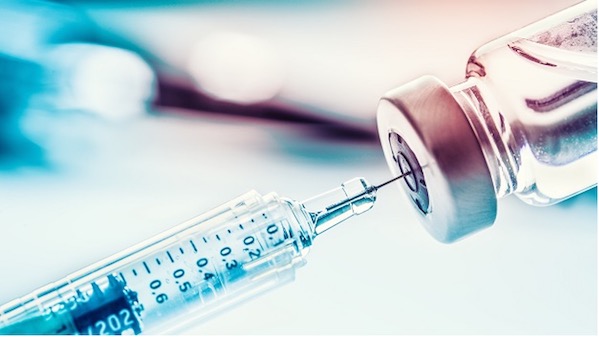Valneva Reports Strong Phase III Chikungunya Vaccine Data After Merck’s Exit from Race
June 15, 2023
Source: drugdu
 299
299
By Tristan Manalac
 Pictured: Syringe pulling vaccine from a vial / Adobe Stock, weyo
Pictured: Syringe pulling vaccine from a vial / Adobe Stock, weyo
Data from a Phase III study showed Valneva’s chikungunya vaccine candidate VLA1553 can elicit a strong immune response and could be an effective protective option against the mosquito-borne disease caused by the chikungunya virus, the French company announced Tuesday.
This news follows a February 2023 report from Fierce Biotech revealing that Merck had dropped out of the chikungunya race. Citing a company spokesperson, Fierce noted that the decision to discontinue the chikungunya program was part of the company’s “routine pipeline prioritization.”
Published Monday in the medical journal The Lancet, Valneva’s double-blinded and randomized Phase III study enrolled more than 4,100 participants who were given either VLA1553 or placebo. In the per-protocol analysis, the investigational shot induced neutralizing antibody titers above the protective threshold in 263 of 266 participants with evaluable findings. This corresponded to a 28-day seroprotection rate of 98.9%.
VLA1553 was also highly effective across different participant age groups, with seroprotection rates of 98.6% and 100% in patients aged 18–64 years and 65 years and above, respectively.
As for safety, Valneva’s candidate was generally well tolerated but consistently led to a higher rate of side effects than placebo. More than half of inoculated patients developed at least one adverse event related to the prophylactic, as opposed to only 31.2% in placebo comparators. There were two serious adverse events that were deemed related to VLA1553.
Chikungunya is caused by a Togaviridae virus carried by Aedes mosquitoes. The infection causes symptomatic sickness in up to 92% of humans, often manifesting as fever, joint and muscle pain, nausea, rashes and headaches. While mortality from chikungunya is low, morbidity is high and leads to a heavy economic and healthcare burden.
Valneva’s answer to chikungunya is VLA1553, a live-attenuated vaccine candidate designed to be given in just one dose. In an accompanying commentary, also published Monday in The Lancet, Kathryn Stephenson, from the Center for Virology and Vaccine Research of the Beth Israel Deaconess Medical Center, wrote that “there are several advantages to VLA1553 as a potential chikungunya virus vaccine.”
Among these is its single-dose administration that can elicit protective immunity “within weeks,” which is important for VLA1553’s goal of combatting and preventing chikungunya outbreaks.
In contrast, its live-attenuated technology could be a crucial weakness for Valneva’s candidate, making it contraindicated for immunocompromised vaccinees and not safe to use in pregnant women, Stephenson said. Manufacturing might also pose challenges as live viruses require highly contained and secure production facilities as well as careful heat, storage and shipping controls.
In August 2022, Valneva initiated the rolling submission for VLA1553’s Biologics License Application, which the FDA has granted Priority Review. The regulator is set to release its decision by the end of August 2023. If approved, VLA1553 could become the first approved chikungunya vaccine.
Reference: https://www.biospace.com/
By editorRead more on
- Phase III Clinical Trial of Recombinant Staphylococcus Aureus Vaccine Progressing Normality January 21, 2026
- Its drug marketing application for injectable iza-bren has been accepted January 21, 2026
- Kain Technology withdrew a drug registration application, resulting in a profit reduction of 111 million yuan in 2025 January 21, 2026
- Received Notice of Approval for Drug Clinical Trial January 21, 2026
- Breaking news! AstraZeneca to be delisted from Nasdaq. January 21, 2026
your submission has already been received.
OK
Subscribe
Please enter a valid Email address!
Submit
The most relevant industry news & insight will be sent to you every two weeks.



